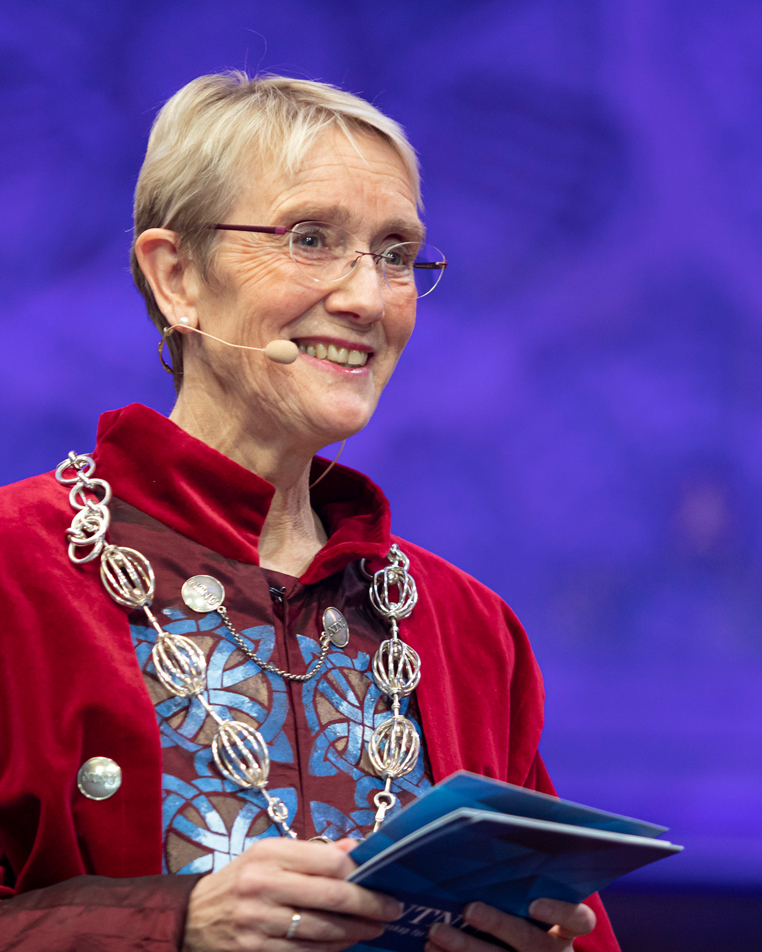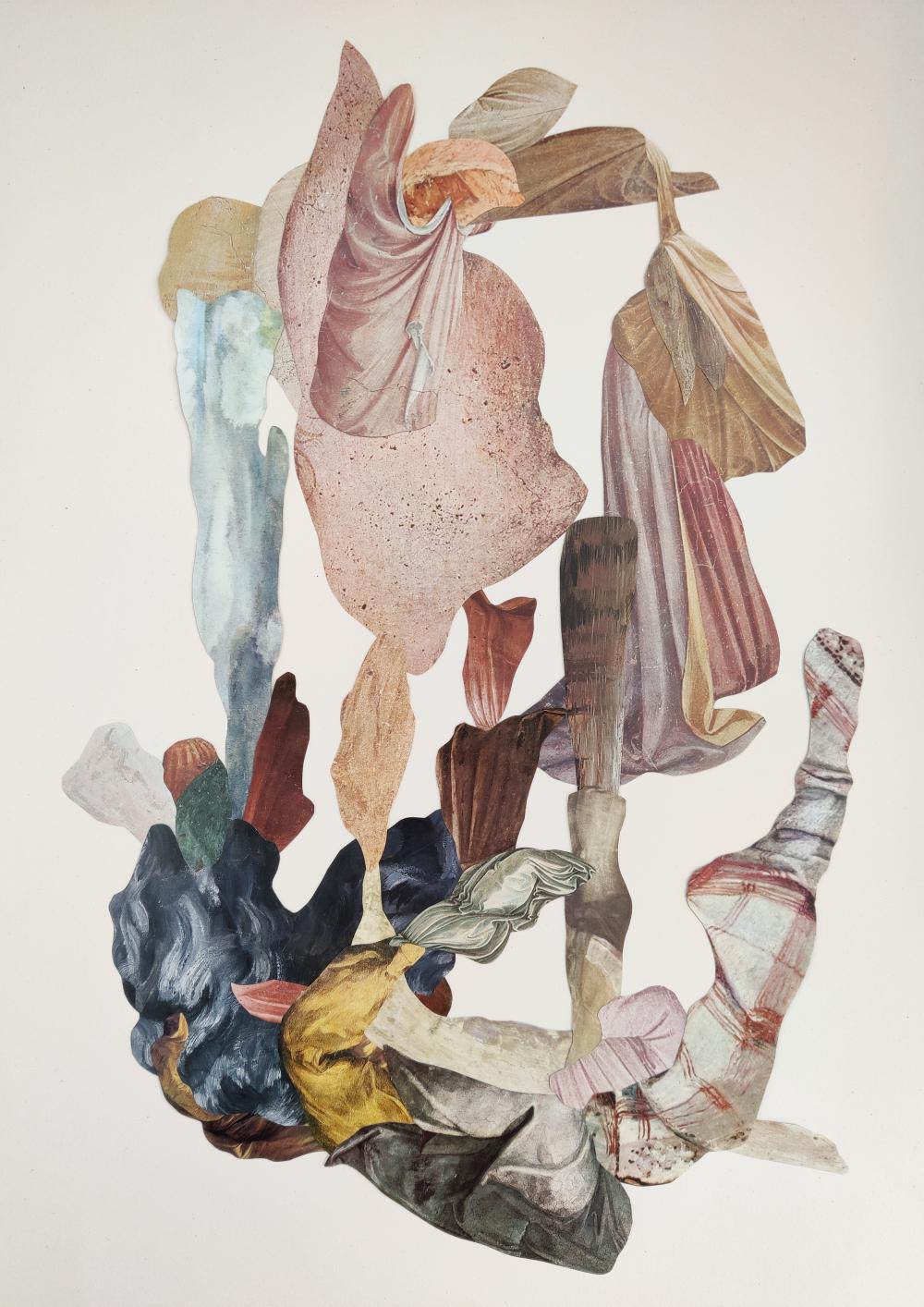Doctoral awards ceremony 2022

Welcome to the Doctoral Awards Ceremony
- Venue: Aulaen, NTNU main building, Gløshaugen.
- Time: at 12 noon. The doors will open at 11 o'clock. Attendance no later than 11.30
Program 17th November
Academic Procession
Academic Procession
Music
Trondhjems Studentersangforening | Cond.: Daniel Zakarias Von Gertten
- «Gaudeamus Igitur», Music: Gavin David Lee
Academic Procession
| Rekke 1 | Rekke 2 |
|---|---|
| Rector Anne Borg | Prorector Toril Hernes |
| Vice-Rector Ålesund Annik M. Fet | |
| IV - Faculty of Engineering | Prorector Marit Reitan |
| OK - Faculty of Economics and Management | NV - Faculty of Natural Sciences |
| AD - Faculty of Architecture and Design |
MH - Faculty of Medicine and Health Sciences |
| IE - Faculty of Information Technology and Electrical Engineering | SU - Faculty of Social and Educational Sciences |
| HF - Faculty of Humanities | VM - NTNU University Museum |
Music after Academic Procession
Trondhjems Studentersangforening | Cond: Daniel Zakarias Von Gertten
- «Gryning vid Havet" Music: Hugo Alfvén | Tekst: Sten Selander
- «Hej, dunkom" Svensk folkevise Arr.: Vilhelm Svedbom
The Rector's speech: Greetings from the Rector Anne Borg
The Rector's speech: Greetings from the Rector Anne Borg
NTNU Honorary Award Erik Must
NTNU Honorary Award Erik Must
Music
NTNU Brass: Georg Friedrich Händel, La Réjoussance arr H.P.Stangnes
The rectors speech to Erik Must: Rector Anne Borg
This year’s Award of Honour has been proposed by the Department of Clinical and Molecular Medicine (MH) and goes to a man who has shown great interest in new technology and innovation over many decades. The award winner was born in Trondheim in 1943 and has a degree in business administration from Copenhagen Business School. He is an investor with holdings in a wide range of medium-sized Norwegian companies.
Since the 1990s, he has had close contact with NTNU. He became interested in the computing research environment, which later led to the establishment of the company Fast.
He was also a driving force in developing collaboration between the academic communities in computer science and molecular biology at NTNU. In addition, he funded Norway’s first professorship in bioinformatics.
Over 20 years, he has contributed NOK 35 million to the strategic research area of bioinformatics and molecular biology at NTNU.
The funding has contributed significantly to research activities and important research laboratories used by researchers nationally and internationally. His role as a catalyst and funder has been important for the development of bioinformatics as a discipline at NTNU and contributed to NTNU’s position as a leading academic environment in this area. This, in turn, has had an impact on Norwegian industry, which has achieved international success.
It is therefore a great pleasure for me to award this honour to a man whose contribution to society over many years has supported NTNU’s vision of Knowledge for a Better World.
This year’s Award of Honour goes to Erik Must.
NTNU Honorary Award Erik Must
Music
Aura string quartet: W. A. Mozart. Divertemento in F, K.138: 3. Presto (2 min 10 sek)
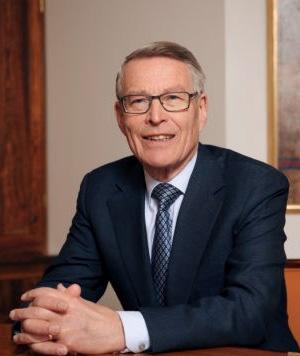
Erik Must (born 1943) – bioinformatics and molecular biology.
Erik Must is a Norwegian investor who graduated with a degree in Business Administration (siviløkonom) from Copenhagen Business School.
Since the 1990s, he has had close contact with NTNU and has shown great interest in new technology and innovation. He became interested in informatics research on search algorithms, which later led to the establishment of the company Fast. He was also a driving force in developing collaboration between the academic communities in computer science and molecular biology, and he funded Norway’s first professorship in bioinformatics.
Over 20 years, he has contributed NOK 35 million to the strategic research area of bioinformatics and molecular biology at NTNU. The funding has contributed significantly to the pursuit of research and the operation of important core facilities that are also used nationally and internationally.
His role as a catalyst and funder has been important for the development of bioinformatics as a discipline at NTNU and contributed to NTNU becoming a leading academic environment in this area.
Erik Must has meant a great deal for the academic communities in molecular biology and informatics through strategic research funding of professorships and research infrastructure. This has in turn had an impact on Norwegian industry, which has achieved international success. The research infrastructure is also used by Norwegian and international communities.
The proposer is the Department of Clinical and Molecular Medicine (MH).
NTNU Honorary Doctor Patricia Lago
NTNU Honorary Doctor Patricia Lago
Music
NTNU Brass: ..... arr. Hans Petter Stangnes
The proposers speech: John Krogstie, Director NTNU Digital and Professor in Information Systems
Tale fra NTNUs æresdoktor Patricia Lago
Music
Aura string quartet: Anton Arensky, String quartet no. 2 in A minor, Op. 35: II variation
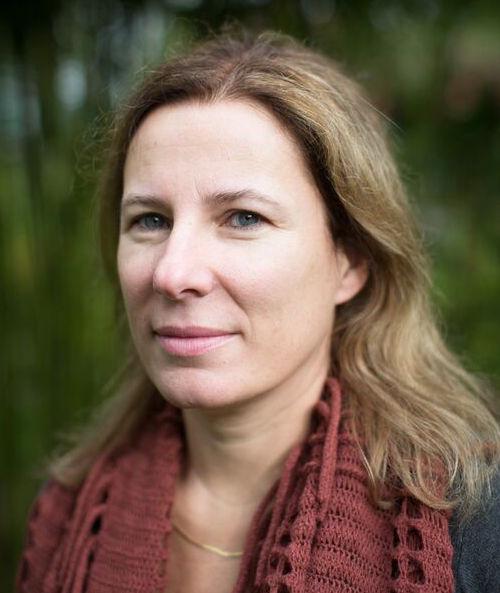
Patricia Lago (born 1967) – software development.
Patricia Lago is a professor at Vrije Universiteit in Amsterdam, where she heads the Software and Sustainability Research Group.
She is a pioneer in software development, software architecture and sustainability in Europe and internationally. Her research has been applied in areas such as smart cities, digital transformation and digital public health. She is a prominent member of the international research community, where she has been involved in many international research projects, held leading editorial roles at key journals and chaired programme committees for the most important international research conferences in the field. She has developed new master’s programmes to educate the next generation of software developers, focusing on digital transformation and sustainability.
Lago is an important female role model in an otherwise male-dominated field. Since 2020, she has led the EU network for gender equality in information technology.
Lago has worked together with NTNU’s academic community since the 1990s as a co-author, member of PhD assessment committees, guest researcher and advisor for research projects and applications. Awarding her an honorary doctorate will strengthen and confirm NTNU’s role as a leading environment in software development, the academic community believes.
The proposer is the Department of Computer Science (IE).
Promovering doctores
Promovering doctores
Award of doctoral degrees
Congratulations to the new doctors
Pro-Rector for Innovation Toril A. Nagelhus Hernes
Dear new doctoral graduates.
Today is a proud day, both for you and for NTNU.
Congratulations!
A doctoral degree from NTNU is no walk in the park. It takes hard work. It’s demanding and sometimes very frustrating.
You’re constantly shifting focus between the goal far ahead and the challenges that must be solved then and there.
This ceremony marks your completion of the highest education one can achieve at a university.
And education is worth its weight in gold, in every country and continent.
Time and time again, public- and private-sector employers emphasize
- the benefits of the ability to get things done that you gain by completing a PhD project,
- and the advantage of the unique skills you achieve by solving complex problems or development tasks.
Today, you’ve finally reached your goal, and I hope you’ve forgotten the despair and frustration many of you must have felt along the way. Today, it’s time to feel joy and pride. Which you richly deserve. Savour the moment and savour the thought of the opportunities ahead.
Greetings to those who are with you doctoral graduates today:
Family members and friends taking part in this celebration. Many of you have contributed to the doctorate in different ways. This is important to many people.
I would like to thank all the other academic staff at NTNU who have contributed in cooperation and supervision. And not least all partners in the private and public sectors, and in academia nationally and internationally. Such partnerships are vital for high quality and relevance in doctoral work.
Now, to get back to all of you: Congratulations on this very special day!
----
You are all hereby promoted to doctors at the Norwegian University of Science and Technology, and are thereby granted jus docendi, or the right to lecture at NTNU.
I also declare the other doctors not present today to be promoted in absentia
Music
- NTNU Brass: Edvard Grieg, Hyldningsmarsj fra Sigurd Jorsalfare arr H.P.Stangnes
- Trondhjems Studentersangforening «Studentsång», tekst Herman Sätherberg, comp. Prins Gustaf, Cond. Daniel Zakarias Von Gertten
The official ceremony is over when the Academic Procession departs. When the official part of the ceremony is over, there will be photos taken of the procession. Afterwards, there are light refreshments.
The artwork included with the diploma
The artwork included with the diploma
Program 18th November
Academic Procession
Academic Procession
Music
Trondhjems Studentersangforening | Dirigent: Daniel Zakarias Von Gertten
- «Gaudeamus Igitur», Musikk: Gavin David Lee
Academic Procession
| Rekke 1 | Rekke 2 |
|---|---|
| Rektor Anne Borg | Prorektor Marit Reitan |
| Stephen Harrison | Prorektor Toril Hernes |
| Dierk Raabe | Viserektor Annik M. Fet |
| ØK - Fakultet for økonomi | NV - Fakultet for naturvitenskap |
| AD - Fakultet for arkitektur og design | MH - Fakultet for medisin og helsevitenskap |
| IE - Fakultet for informasjonsteknologi og elektroteknikk | SU - Fakultet for samfunns- og utdanningsvitenskap |
| IV - Fakultet for ingeniørvitenskap |
VM - NTNU Vitenskapsmuseet |
|
HF - Det humanistiske fakultet |
Music
Trondhjems Studentersangforening | Dirigent: Daniel Zakarias Von Gertten
- «Gryning vid Havet" Musikk: Hugo Alfvén | Tekst: Sten Selander
- «Hej, dunkom" Svensk folkevise Arr.: Vilhelm Svedbom
Greetings from Rector Anne Borg
Greetings from Rector Anne Borg
NTNU Honorary Doctor Stephen Harrison
NTNU Honorary Doctor Stephen Harrison
Music
NTNU Brass: Georg Friedrich Händel, La Réjoussance arr H.P.Stangnes
The proposers speech: Thea Selliaas Thorsen
NTNU Honorary Doctor Stephen Harrison
Music
Aura string quartet: Anton Arensky, String quartet no. 2 in A minor, Op. 35: II variation
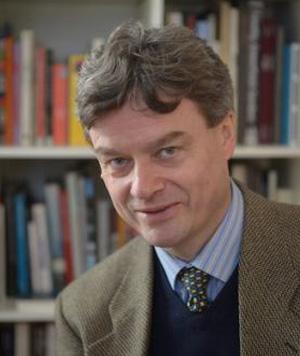
Stephen Harrison (born 1960) is Professor of Latin Literature at the University of Oxford and a Senior Research Fellow at Corpus Christi College.
He has taught Latin literature at the University of Oxford since 1987, and supervised and co-supervised numerous doctoral theses across a wide range of areas within the Classics.
Harrison has since the 1990s been a world leading researcher on ancient literature and the classical tradition and promoted new perspectives and works to the international research community. Through the years, he has published extensively on Latin literature and its later reception, including eight sole-authored monographs and almost 90 sole-authored articles. His area of expertise includes the two major Roman poets Virgil and Horace, and he has published commentaries on both authors’ works. Among his many studies on the later reception of classical literature we can single out his work on Irish Nobel Prize winner Seamus Heaney and his contributions to the field of classical reception; he has given several talks on this topic, and is the co-author of the volume Seamus Heaney and the Classics, which was published with Oxford University Press in 2019.
From his base in Oxford, Harrison has shared his cutting-edge research with scholarly communities within the field of Classics all over the world. He has been a guest lecturer and researcher on all six continents, and a member of scientific academies in Europe, in Italy, Poland, and Norway. He has since 1985 and throughout his career given invited guest lectures or conference papers at almost all the universities in the UK which have classical departments, and at universities in other parts of Europe, including among several others the universities of Aarhus, Amsterdam, Bergen, Bologna, Leiden, Munich, Oslo, Pisa, Rome, and Uppsala. Outside Europe, he has been a visiting lecturer in Australia, speaking at the universities of Sydney, Melbourne, Monash, Adelaide and Perth, and at the University of Cape Town, South Africa, and at several universities in the USA, including Columbia, Princeton, Yale, Harvard, and Stanford. He has also been a member of numerous advisory boards for research applications and editorial boards for publishing houses, such as Oxford and Princeton University Presses.
Harrison has visited Trondheim and NTNU many times, where in 2015 he accepted a position as Professor II. For NTNU’s Department of Historical and Classical Studies, he has for many years opened the door to Oxford University for their researchers and students, through research collaborations, the co-organization of conferences both in Trondheim and Oxford, the supervision of several PhD candidates, and by offering his advice on university publishing. He has given several lectures to undergraduate students, and in 2019, he gave a public lecture for NTNU’s Big Challenge festival.
In 2020, Harrison donated a large part of his private library to NTNU University Library.
The proposer is the Department of Historical and Classical Studies (HF).
NTNU Honorary Doctor Dierk Raabe
NTNU Honorary Doctor Dierk Raabe
Music
NTNU Brass: Henry Purcell, Marche & Dance arr H.P.Stangnes
The proposers speech: Knut Marthinsen
NTNU Honorary Doctor Dierk Raabe
Music
Aura string quartet: Anton Arensky, String quartet no. 2 in A minor, Op. 35: II variation
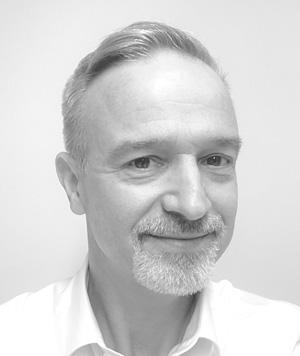
Dierk Raabe (born 1965) – materials science and engineering.
Dierk Raabe is the Director of the Department of Microstructure Physics and Alloy Design at the Max-Planck-Institut für Eisenforschung in Düsseldorf and a professor at RWTH Aachen University.
He is among the world’s leading researchers in his field. In his research, he uses advanced characterization and simulation techniques to develop materials with superior properties.
In recent years, he has taken a keen interest in developing more sustainable processes for material production and recycling, as well as developing more durable materials. He has received a number of awards including the Leibniz Prize, Germany’s highest research honour, and won an ERC Advanced Grant in 2012.
The materials research environments at NTNU have known Raabe since the 1990s, and he has visited the university and given guest lectures here several times. He has also been one of the main architects behind software used by our academic community. He is a member of the international scientific advisory committee for the PhysMet Centre for Research-based Innovation (SFI).
The award would help to strengthen the collaboration with Dierk Raabe and his colleagues at the Max-Planck-Institut für Eisenforschung. Sustainable production of materials is an important strategic area for NTNU and Norwegian industry.
The proposers are the Department of Materials Science and Engineering and the Department of Physics (Faculty of Natural Sciences – NV).
Promovering doctores
Promovering doctores
Award of doctoral degrees
Congratulations to the new doctors
Pro-Rector for Innovation Toril A. Nagelhus Hernes
Dear new doctoral graduates.
Today is a proud day, both for you and for NTNU.
Congratulations!
A doctoral degree from NTNU is no walk in the park. It takes hard work. It’s demanding and sometimes very frustrating.
You’re constantly shifting focus between the goal far ahead and the challenges that must be solved then and there.
This ceremony marks your completion of the highest education one can achieve at a university.
And education is worth its weight in gold, in every country and continent.
Time and time again, public- and private-sector employers emphasize
- the benefits of the ability to get things done that you gain by completing a PhD project,
- and the advantage of the unique skills you achieve by solving complex problems or development tasks.
Today, you’ve finally reached your goal, and I hope you’ve forgotten the despair and frustration many of you must have felt along the way. Today, it’s time to feel joy and pride. Which you richly deserve. Savour the moment and savour the thought of the opportunities ahead.
Greetings to those who are with you doctoral graduates today:
Family members and friends taking part in this celebration. Many of you have contributed to the doctorate in different ways. This is important to many people.
I would like to thank all the other academic staff at NTNU who have contributed in cooperation and supervision. And not least all partners in the private and public sectors, and in academia nationally and internationally. Such partnerships are vital for high quality and relevance in doctoral work.
Now, to get back to all of you: Congratulations on this very special day!
----
You are all hereby promoted to doctors at the Norwegian University of Science and Technology, and are thereby granted jus docendi, or the right to lecture at NTNU.
I also declare the other doctors not present today to be promoted in absentia
Music
- NTNU Brass: Edvard Grieg, Hyldningsmarsj fra Sigurd Jorsalfare arr H.P.Stangnes
- Trondhjems Studentersangforening «Studentsång», tekst Herman Sätherberg, comp. Prins Gustaf, Cond. Daniel Zakarias Von Gertten
The official ceremony is over when the Academic Procession departs. When the official part of the ceremony is over, there will be photos taken of the procession. Afterwards, there are light refreshments.
The artwork included with the diploma
The artwork included with the diploma


